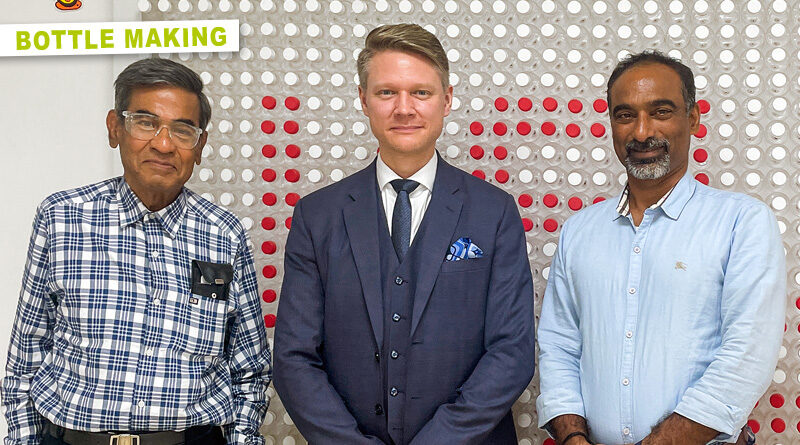Igniting the next stage
Strategic plan for further growth in the Indian packaging market
Manjushree Technopack Limited from Bangalore, India, has set itself ambitious goals under the motto “MTL 2.0”, the company, which is one of the leading plastics processors in the subcontinent, announced as early as 2020 that it wanted to triple its turnover. Now, in the next step, a six- to seven-fold growth is planned by 2026. Reason enough to get to the bottom of the matter and have a conversation in a relaxed atmosphere with Technical Director Vijay Kumar Baheti and the Managing Director Thimmaiah Napanda.
We visited: Manjushree Technopack Limited
December 2, 2022
We met:
Mr Vijay Kumar Baheti, Technical Director
Mr Thimmaiah Napanda, Managing Director & CEO
Manjushree Technopack currently has 23 factories across India. Since its acquisition by Advent International in 2018, the largest rigid plastic packaging producer has grown rapidly. We are sitting in the meeting room of the Phase 2 industrial estate in the Electronic City district, about 45 minutes from Bangalore city centre. Taking the seat across from us is the man who is rooted to the company like no other. Vijay Kumar Baheti has been with Manjushree for over 20 years. He has a degree in Chemical Engineering from the Birla Institute of Technology and Science in Pilani and can look back on 40 years of experience in the plastics industry. He began at Manjushree as Director of Operations, and has been in his current position since 2004.
“Things have been going well for us over the last few years,” he explained. “The pandemic and now the situation with Russia have not really hurt us economically. It’s only the global price increases that we felt and still feel a little bit here and there.” Investments, he said, have continued steadily over the past few years, and energy and production efficiency have also been further optimised. Mr Baheti smiled and further explained, “The new target I want to announce to you today is to grow our sales six to seven times. It is a very pleasant challenge.” We ask what exactly the whole thing is expected to look like. “We want to further expand our capacities and implement new technologies. Existing equipment will be continuously upgraded accordingly. We also want to establish more locations, both through company takeovers and by establishing new factories. Possibly even on a global scale.”
Currently, the company has a machine park of more than 20 Husky preform systems at various locations, more than 300 Nissei ASB single-stage systems, over 15 Sacmi compression moulding lines plus hundreds of IMM, IBM and EBM lines.
With the recent acquisitions of Pearl Polymers 2020, Classy Kontainers and Hitesh Plastics in 2022, in-house production of caps and closures by multiple compression moulding lines also became an important feature.“In the spirit of EPR and to complete the process chain in a meaningful way, we are now also expanding into plastics recycling,” explained Mr Baheti. Specifically, the company has been operating a recycling plant in Bangalore to process HDPE and PP under the “Born Again” brand since mid-2020. The capacity is 6,000 t annually. Plastic waste is collected, for example, in cooperation with the environmental and social enterprise Sahara Zero Waste, which collects plastic waste from various urban areas for further processing. The Indian government’s goal is to have 30% recycled content in new packaging by 2026. In the next big step, Manjushree now wants to tackle the issue of PET recycling.
With the Bureau of Indian Standards (BIS) deciding in summer 2022 that rPET can also be used in beverage and food packaging in the future, which has been discussed for many years but is only now to be permitted by law, there will be immense opportunities to keep PET bottles in circulation by the time the legislation is expected to be finalised in 2025. Mr Baheti explained how the recycling project will work:
“To get the process underway, we will probably start by working with recyclers. The possibilities are endless in the long run. Basically, every state in India would need ten recycling plants of its own to optimise the processing of waste from a logistical and economic point of view. In any case, we have plans to expand the recycling division in India, as well as to expand existing capacities. We are fully prepared to meet these challenges with confidence. Whatever it will take to implement our strategies and achieve our goals, we are committed to do.”
Photo top: F.l.t.r.: Vijay Kumar Baheti, Kay Barton and Thimmaiah Napanda

